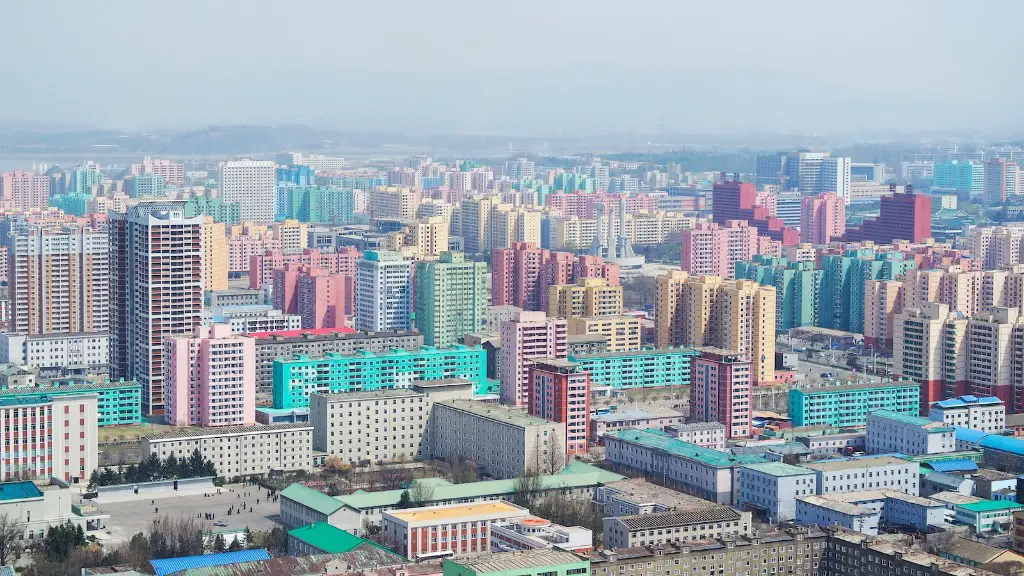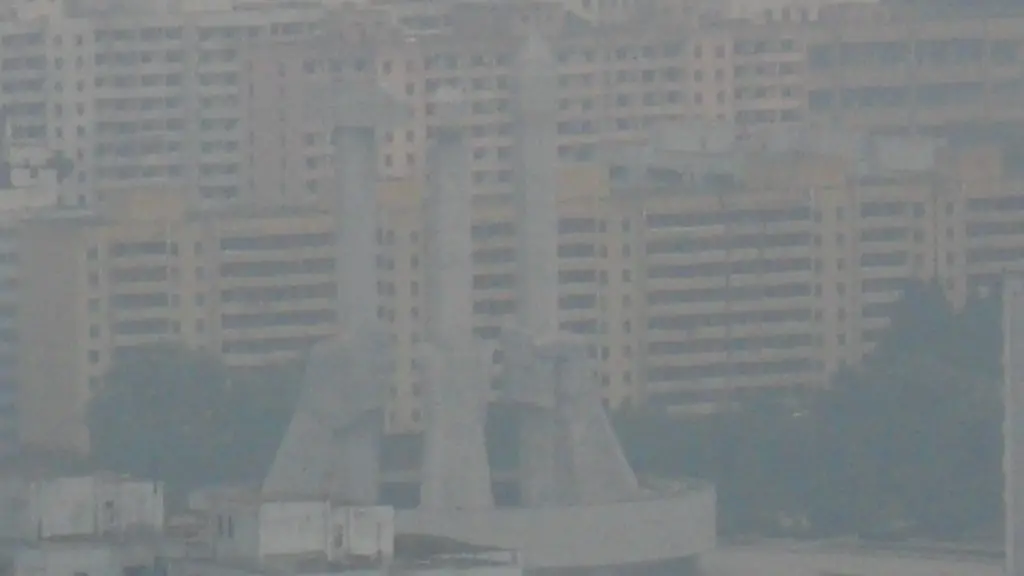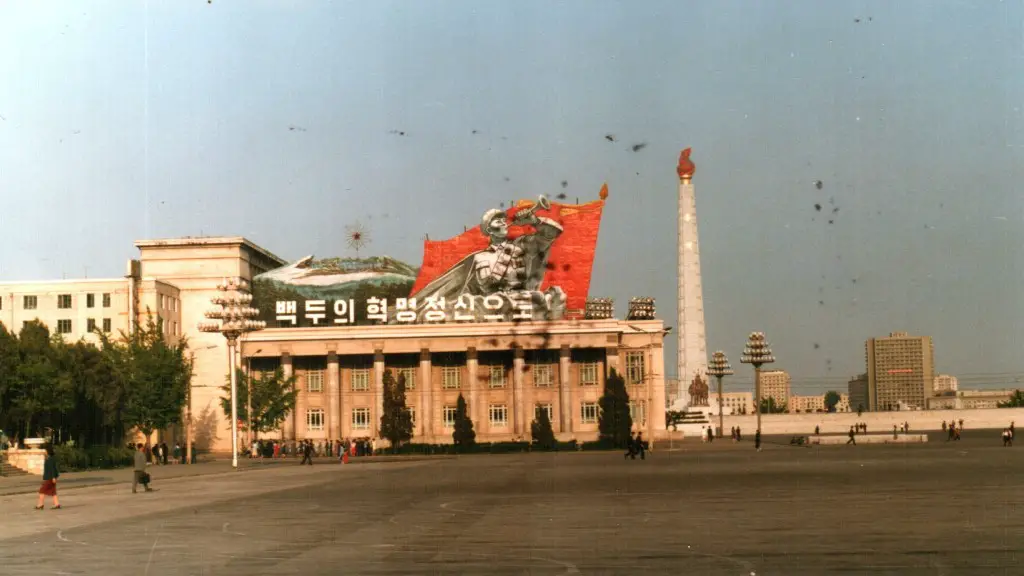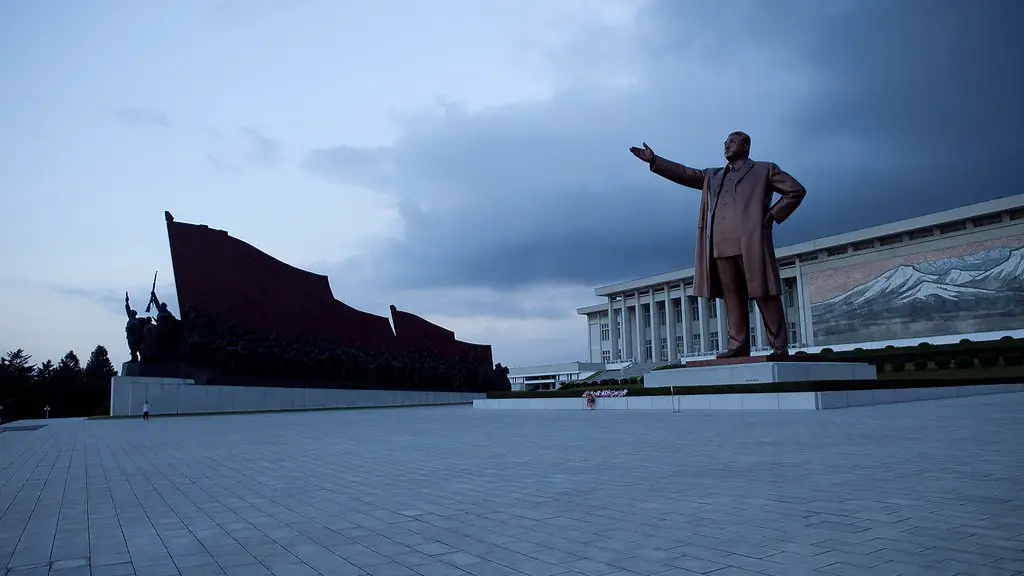Why is North Korea Dark from Space?
While our planet is illuminated at night, making it look like a glowing, glittering jewel from space, the Korean Peninsula looks eerily dark, with only a few small pools of light clustered around the southern city of Busan. But why?
Korea is divided into two countries. While South Korea is bright and well-lit, North Korea looks like a dark pocket of the earth, caused by a lack of electricity for its people. It’s especially noticeable during wintertime when the natural light of the sun is reduced. As to why North Korea is dark, there are numerous economic and political factors to consider.
The most obvious factor is North Korea’s extreme poverty, which has left the country with few resources to generate electricity. North Korea has an estimated GDP of only $28 billion, which is one-fortieth of the size of its southern neighbor, and its annual electrical usage is around 10.5 billion kilowatt-hours, compared to South Korea’s 241.1 billion. This lack of electricity has had a big impact on the lives of North Koreans who, according to a United Nations report, are struggling to access “adequate levels of basic services, including sanitation and safe drinking water, and inadequate access to electricity.”.
In addition to its economic issues, North Korea is subject to an ongoing energy embargo from the United Nations, which has further restricted the regime’s ability to generate electricity. The sanctions were imposed in response to the country’s nuclear weapons program and were designed to restrict the regime’s access to fuel and money for its nuclear ambitions. Inevitably, this has also impacted the country’s electricity supply.
The International Energy Agency has estimated that North Korea could potentially increase its electricity production by as much as 45 percent if it had access to outside funding. This would represent a huge boost in energy production, but unfortunately the UN sanctions make that impossible. As a result, the North Korean people have been left in the dark.
Political Situaton in North Korea
North Korea is a highly secretive and isolated country, with a closed system of government that has left its people in the dark. The regime is ruled by the authoritarian Kim family and the country’s politics have served to further obscure the country from the outside world. This is evidenced by its severe censorship laws, which have been in place since the early days of the regime, as well as its ban on internet access for its citizens. This has contributed to the darkness seen from space, as North Koreans are unable to benefit from the advances of modern technology.
Furthermore, due to the international sanctions and the government’s economic mismanagement, there is little investment in North Korea’s energy infrastructure, leading to an inadequate supply of energy for citizens. The government has limited resources and is unable to provide its citizens with adequate energy, leaving them in the dark. This lack of access to electricity has created a dire situation for the North Korean people, as demonstrated by their poverty levels.
North Korea also has a long history of severe human rights abuses, which could be contributing to its lack of electricity. The regime has shown no sign of addressing the issues, with evidence of widespread torture and forced labor used to suppress the North Korean people. In addition, the government has been known to divert resources away from civilian use, such as using electricity for military purposes, leaving the citizens with even less power than they would otherwise have.
The combination of economic, political, and human rights issues has created a situation of darkness in North Korea. The country is now considered one of the most isolated countries in the world and its people are being left in the dark.
Impact on North Korea
The darkness in North Korea has had a significant impact on the lives of its citizens. The lack of electricity has meant that many North Koreans are unable to access basic services such as healthcare, education, and transportation. In addition, the lack of access to electricity has made it difficult for businesses to operate, leading to a lack of economic development and job creation.
Furthermore, the lack of electricity has had a negative impact on North Korea’s environment. This is due to the fact that many of the country’s factories and power plants are running on outdated equipment which is inefficient and polluting. This inefficiency leads to a higher consumption of energy, as well as increased emissions of carbon dioxide and other pollutants.
The international community has taken notice of the darkness in North Korea, and many aid organizations are working to provide the country with much-needed electricity. These groups are working to improve the energy infrastructure and provide access to clean, renewable energy in an effort to alleviate some of the country’s suffering.
Possible Solutions
As the darkness of North Korea is a result of both economic and political factors, it is clear that efforts must be made to address both of these issues in order to alleviate the situation. On the economic side, North Korea would benefit greatly from increased investment in its energy infrastructure. This could come in the form of foreign aid or direct investment, as well as the development of renewable sources of energy.
On the political side, the international community could lift the restrictions on North Korea and allow the regime to develop its economy. This would provide the country with greater access to outside funding, enabling it to invest in energy production and improve the lives of its people.
In addition, the regime should commit to addressing the human rights abuses and working to improve conditions for its citizens. This would ensure that the country’s resources are not being diverted away from essential services and that electricity is available to its people.
International Reactions
The darkness of North Korea has been met with widespread international condemnation, with many countries calling for the regime to change its ways and allow the people to access electricity. This is evidenced by the recent United Nations resolution demanding the regime to “immediately provide adequate electricity and basic services to the people”. The resolution also calls for an end to the human rights abuses, which have been linked to the lack of electricity in the country.
Despite the international outcry, North Korea has yet to take action to improve the situation or provide access to electricity. As a result, thousands of North Koreans are living in darkness with limited access to the most basic of services.
Conclusion
The darkness of North Korea is a complex issue that is the result of a number of economic, political, and human rights factors. The regime’s economic mismanagement and international sanctions have resulted in a lack of resources and access to energy, leaving the country’s people in the dark. In addition, the regime’s human rights abuses have contributed to the darkness, as resources are being diverted away from essential services.
Going forward, it is essential that the international community take action to address the issues and provide North Korea with much-needed access to energy. This could come in the form of increased foreign aid and direct investment, as well as the removal of international sanctions and an end to the human rights abuses. Only then can the darkness of North Korea be lifted and its people be given the chance to flourish.





